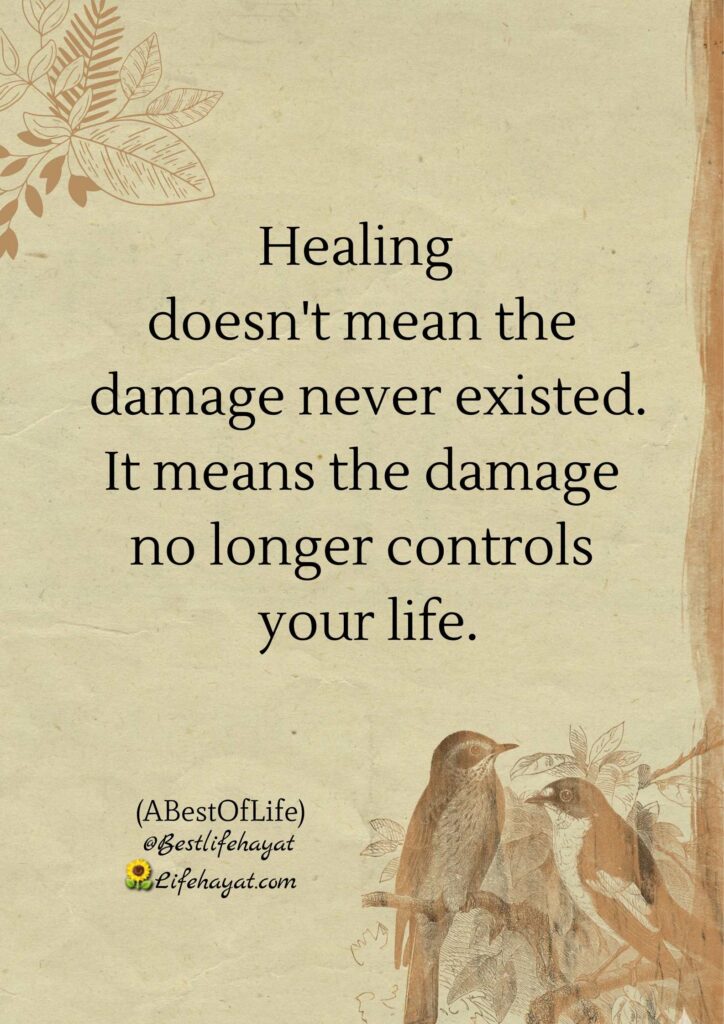
Emotional healing: Emotions are an essential part of the human experience. They provide us with valuable information about our inner world and help us navigate through life’s challenges. However, many of us have been conditioned to suppress or ignore our emotions, believing that they make us weak or vulnerable.
In reality, embracing our emotions is a powerful tool for personal growth and resilience. When we allow ourselves to fully experience our emotions, we open the door to self-discovery and emotional healing.

Emotions serve as a compass, guiding us towards our true desires and needs. By acknowledging and accepting our emotions, we can gain profound insights into ourselves and make more authentic choices.
Moreover, embracing our emotions allows us to connect with others on a deeper level. When we are open and vulnerable about our feelings, we create space for empathy and understanding in our relationships.
This fosters a sense of belonging and support, which is crucial for our emotional healing journey.
No matter what you are going through – Motivational Video
The healing power of self-care and compassion
In our fast-paced and demanding world, it’s easy to neglect our own needs and prioritize external obligations. However, practicing self-care and compassion is vital for our emotional healing and overall well-being.
Self-care involves making a conscious effort to prioritize our physical, psychological, and emotional needs. It can be as simple as taking regular breaks, engaging in activities that bring us joy, or seeking professional help when needed.
By investing in our own well-being, we replenish our emotional reserves and build resilience to face life’s challenges.
Compassion, both towards ourselves and others, is also a transformative force. When we approach ourselves with kindness and understanding, we create a safe space for our emotions to be felt and processed.
It’s important to remember that we are human, and experiencing a range of emotions is part of being alive. By treating ourselves with compassion, we give ourselves permission to fully embrace our emotions and learn from them.

How to stop criticizing yourself and embrace self-acceptance
Self-criticism can be a destructive habit that hinders our emotional healing. When we constantly judge and berate ourselves for our emotions, we create resistance and block the healing process.
Instead, it’s essential to cultivate self-acceptance and embrace our emotions with kindness and understanding.
One way to start embracing self-acceptance is by challenging our inner critic. Pay attention to the negative self-talk and replace it with more compassionate and realistic thoughts.
Remind yourself that it’s okay to feel a certain way and that emotions are not a sign of weakness but rather a sign of being human.Practicing self-acceptance also involves embracing our imperfections and understanding that we are all works in progress.
Embrace the idea that growth and healing are lifelong journeys, and there is no need to be perfect.
By accepting ourselves as we are, with all our emotions and flaws, we create a foundation for emotional healing and personal growth.

You may also like Let It Heal – Inspiring Quotes
The role of maintaining a positive mindset in overcoming challenges
Maintaining a positive mindset is crucial when facing life’s challenges. It doesn’t mean ignoring or suppressing negative emotions; rather, it’s about cultivating a hopeful and optimistic outlook that helps us navigate through difficult times.
A positive mindset allows us to see challenges as opportunities for growth and learning. It helps us reframe setbacks as temporary and empowers us to find creative solutions.
By focusing on the possibilities instead of dwelling on the difficulties, we shift our energy towards finding solutions and moving forward.
To maintain a positive mindset, it’s important to surround ourselves with uplifting and supportive influences. Seek out positive role models, read inspiring books or listen to motivational podcasts.
Engage in activities that bring you joy and make you feel alive. By consciously choosing to focus on the positive aspects of life, we create a resilient mindset that can withstand the storms of adversity.

Focusing on what you can change and letting go of what you can’t
One of the keys to emotional healing is learning to differentiate between what we can change and what we cannot. Often, we waste precious energy and emotional resources by trying to control or change things that are beyond our control.
This only leads to frustration and a sense of powerlessness. Instead, it’s important to focus our efforts on what we can change. This involves identifying the areas of our lives where we have agency and taking proactive steps towards positive change.
By taking ownership of our choices and actions, we regain a sense of control and empower ourselves to create the life we desire. Equally important is learning to let go of what we cannot change. This requires acceptance and surrender to the natural flow of life.
Sometimes, the most healing thing we can do is release our attachment to outcomes and trust that everything happens for a reason. By letting go of what is beyond our control, we free ourselves from unnecessary stress and create space for emotional healing and growth.

You can also read If You Want To Let Go – Quotes Of The Day
The benefits of practicing mindfulness in processing emotions
Mindfulness is a powerful practice that can greatly support our emotional healing journey. By cultivating present-moment awareness and non-judgmental observation of our thoughts and emotions, we develop a deeper understanding of ourselves and our emotional landscape.
When we practice mindfulness, we create a safe container for our emotions to arise and be processed. Instead of reacting impulsively or suppressing our feelings, we learn to observe them with curiosity and compassion. This allows us to gain insights into the underlying causes of our emotions and make conscious choices about how to respond.
Furthermore, mindfulness helps us develop emotional resilience. By bringing our attention to the present moment, we break free from the grip of past regrets or future worries. We learn to anchor ourselves in the here and now, where our true power lies. This empowers us to respond to life’s challenges from a place of calmness and clarity, rather than being overwhelmed by our emotions.

Letting go of perfectionism and embracing self-reflection
Perfectionism is often a barrier to emotional healing and growth. The constant striving for perfection creates unnecessary pressure and sets unrealistic expectations. Embracing self-reflection, on the other hand, allows us to learn from our experiences and make conscious choices for our emotional well-being.
Self-reflection involves taking an honest and compassionate look at ourselves and our emotions. It’s about becoming aware of our patterns, beliefs, and behaviors and questioning whether they serve our highest good.
By engaging in self-reflection, we gain clarity and insight into ourselves, which is essential for personal growth. Letting go of perfectionism is a liberating act that allows us to embrace our authentic selves. It’s about shifting our focus from external validation to internal fulfillment.
When we let go of the need to be perfect, we create space for self-compassion and self-acceptance. This opens the door to emotional healing and personal growth.

Finding inspiration and motivation in challenging times
Challenging times can leave us feeling stuck or overwhelmed. However, they can also be a source of inspiration and motivation for personal growth. By shifting our perspective and seeking out inspiration, we can find the strength to overcome obstacles and embrace our emotions as catalysts for change.

One way to find inspiration is by connecting with stories of resilience and triumph over adversity. Read biographies or watch documentaries about people who have overcome similar challenges. Their stories can serve as a reminder that we are not alone in our struggles and that it is possible to rise above them.
Additionally, finding motivation in challenging times involves setting realistic goals and taking small steps towards them. Break down your goals into manageable tasks and celebrate each milestone along the way. By focusing on progress, no matter how small, you create a positive momentum that propels you forward.

The importance of engaging with supportive people and community to achieve emotional healing
Supportive relationships are essential for emotional healing and growth. Surrounding ourselves with people who uplift and empower us creates a supportive network that helps us navigate through life’s challenges. Engaging with supportive people and community allows us to share our emotions and experiences in a safe and non-judgmental space.
It provides us with a sense of belonging and validation, which is crucial for our emotional well-being. Seek out like-minded individuals who understand and accept your emotions, and who can offer guidance and support when needed.
Additionally, engaging with a community or support group can provide us with new perspectives and insights. It allows us to learn from the experiences of others and gain valuable knowledge about emotional healing and personal growth.
By sharing our stories and listening to others’, we create a collective healing space that benefits everyone involved.

Reminding yourself that nothing lasts forever – the impermanence of emotions
In the midst of intense emotions, it’s easy to lose sight of the fact that emotions are temporary. They come and go like waves, and no emotion lasts forever. Reminding ourselves of this impermanence can provide solace and a sense of hope during challenging times.
When we recognize that emotions are transient, we can observe them with a sense of detachment. We learn to ride the waves of emotions without getting caught in their undertow. This allows us to respond to our emotions from a place of calmness and clarity, rather than being overwhelmed by their intensity.
Practicing mindfulness can greatly support our understanding of the impermanence of emotions. By observing our thoughts and emotions without judgment, we develop a deeper awareness of their transient nature. This awareness helps us let go of attachment to our emotions and allows us to embrace the ebb and flow of life.

Practicing gratitude for what you have and cultivating positivity
Gratitude is a powerful practice that can shift our perspective and cultivate positivity in our lives. By focusing on what we have instead of what we lack, we create a sense of abundance and contentment. Gratitude also allows us to appreciate the small joys and blessings that surround us every day.
Practicing gratitude involves consciously acknowledging and expressing appreciation for the things, people, and experiences that bring us joy and fulfillment. It can be as simple as keeping a gratitude journal, where you write down three things you are grateful for each day.
By making gratitude a daily habit, we train our minds to focus on the positive aspects of life.Cultivating positivity goes hand in hand with gratitude. It’s about consciously choosing to see the glass half full rather than half empty.
By reframing negative situations and focusing on the lessons and opportunities they present, we create a positive mindset that supports our emotional healing and personal growth.

Words Of Gratitude And Appreciation – 30 Inspiring Quotes
Conclusion: Embracing your emotions as a path to personal growth and resilience
Embracing our emotions is a powerful path to personal growth and resilience. It allows us to fully experience and process our feelings, leading to profound insights and healing.
By practicing self-care and compassion, letting go of perfectionism, and maintaining a positive mindset, we create a solid foundation for emotional well-being.

Engaging with supportive people and community provides us with a sense of belonging and validation, while practicing mindfulness and gratitude cultivates a positive and resilient mindset.
By reminding ourselves of the impermanence of emotions and focusing on what we can change, we empower ourselves to navigate through life’s challenges with grace and strength. Embracing our emotions is not always easy, but it is a courageous and transformative act. It is through our emotions that we can truly connect with ourselves and others.

So, let us embrace our emotions, for they are the gateway to personal growth, healing, and a life filled with meaning and purpose.
Visits: 475


Wonderful positive post, thank you 🙂
Thank you so much 👍🏻😊
This is a beautiful read, Chaymaa. ❤️
Thank you 😊💐